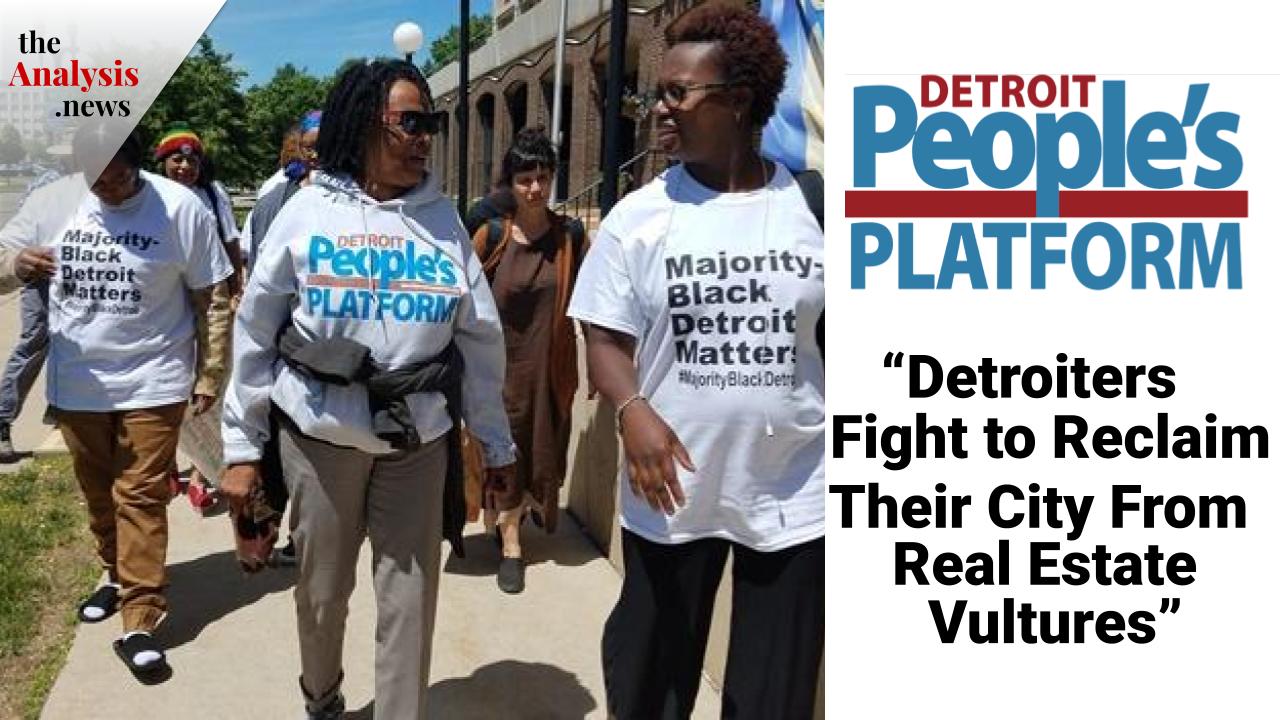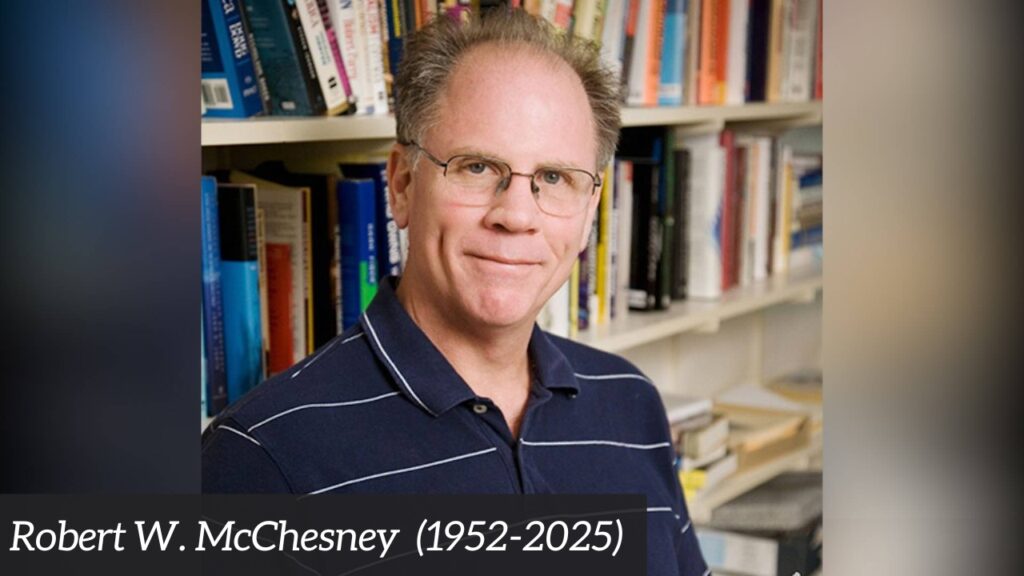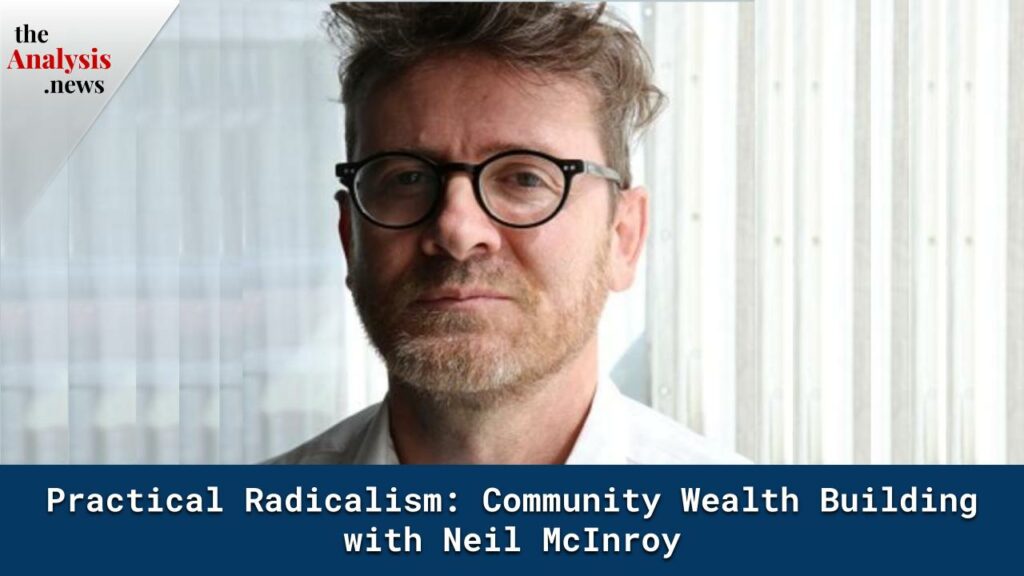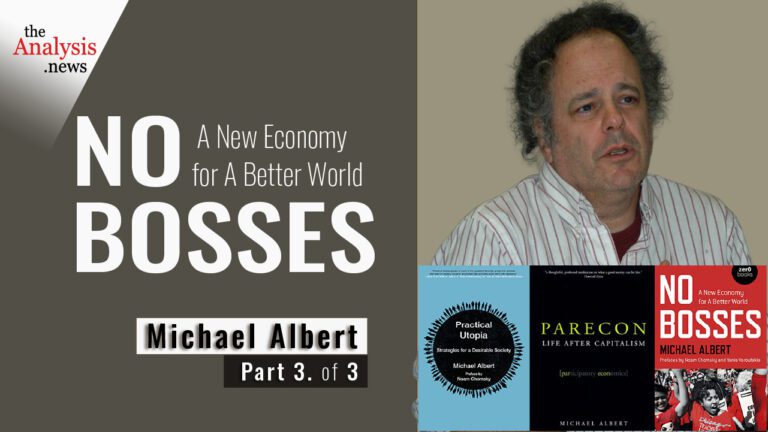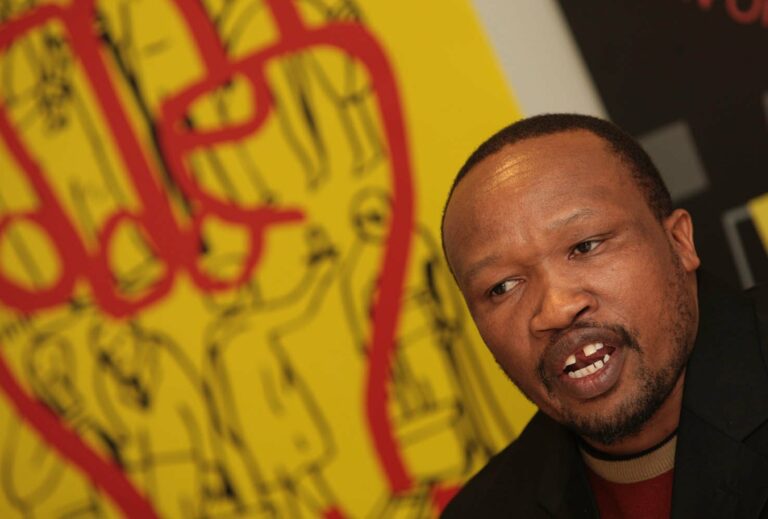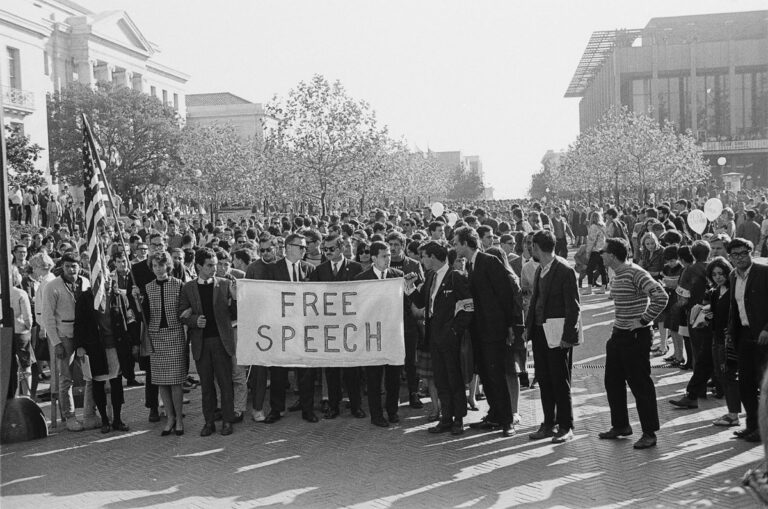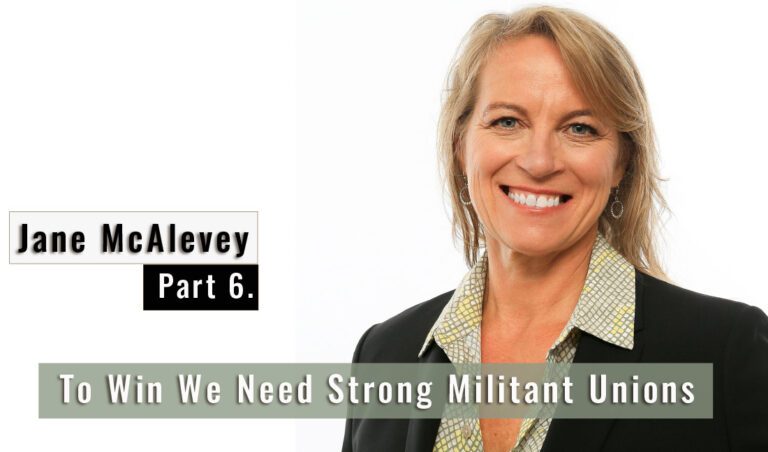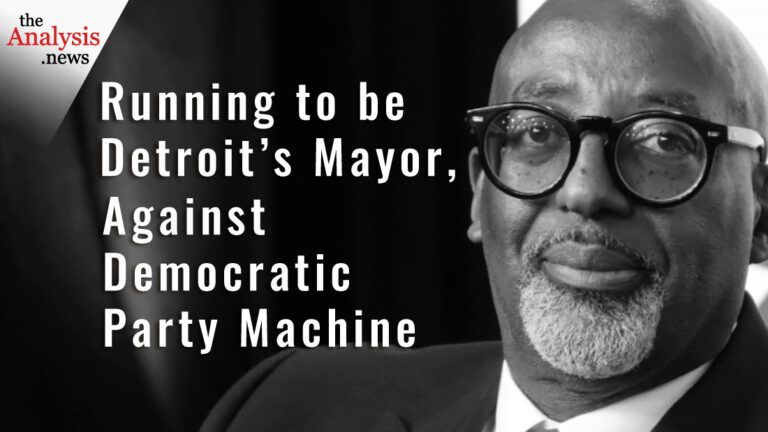Linda Campbell, Director of the Detroit People’s Platform, has worked as a community organizer in Detroit for decades. She speaks about local initiatives which advocate for investment in affordable housing and oppose the public financing of big real estate projects which have historically contributed to community land dispossession. She also applauds the Michigan Democrats’ recent repeal of right-to-work legislation and calls upon the political leadership to fight for higher wages, particularly for non-union workers not covered by prevailing wage protections.
Talia Baroncelli
Hi, I’m Talia Baroncelli, and you’re watching theAnalysis.news. I’ll shortly be joined by community organizer Linda Campbell to speak about housing issues in Detroit, as well as the recent appeal of right-to-work legislation in the state of Michigan. If you enjoy this content, please do go to our website, theAnalysis.news, and hit the donate button at the top right corner of the screen. You can get onto our mailing list. Most importantly, please go to our YouTube channel, theAnalysis-news, and hit the bell. The bell ensures that you’re informed every time a new episode drops so that you don’t miss future content. Thanks, and see you in a bit.
Joining me now is Linda Campbell. She is the Director of the Detroit People’s Platform and has been involved in community organizing in Detroit for many years. She’s also the Editor of a People’s Atlas of Detroit, which is a collection of stories, essays, poems, and photographs which showcase the everyday struggles of Detroiters for economic and racial justice. Thank you so much for being here, Linda.
Linda Campbell
Yes, thanks for having me.
Talia Baroncelli
I’d like to start off with some of the work you’ve been doing at the Building Movement Project in Detroit, as well as the Detroit People’s Platform. So maybe you can explain some of the community organizing you’ve been doing.
Linda Campbell
Sure. First, let me clarify the connection with the Building Movement Project, the connection that exists between the Building Movement Project and Detroit People’s Platform. The Building Movement Project is a national organization based in New York. They do a lot of research and technical assistance with a variety of groups across the country, basically with the mission to provide nonprofit organizations with the tools and the capacity to do effective movement-building work.
The DPP, Detroit People’s Platform, connection with the Building Movement Project grows out of my relationship. I am one of the founders of the Building Movement Project. In 1999, a group of us came together from across the country from various disciplines. Some of us were social service providers, as was I. Some were organizers. Some were academics. Some were grassroots social change fundraisers. It was an interesting compilation of folk. The one thing we all had in common was our growing frustration with the nonprofit sector here in the United States. Many of us felt that the nonprofit sector was not living into a progressive vision of work on the ground, particularly in communities that were struggling around basic rights, access to services, and equity. We came together with the mission to really start to organize and agitate the sector to become much more progressive in its work.
At the time, I relocated to Detroit. I had been living in New York when the Building Movement Project, the early iteration of that project– I relocated to Detroit, Michigan, and became involved in trying to implement some of the strategies of the Building Movement Project here. I went to work connecting with social service organizations here in Detroit that were seeing thousands of people who, for a variety of reasons, mostly the divestment in neighborhoods– a huge one was the divestment in manufacturing and labor not only in Michigan but across the country, which had resulted in massive layoffs and loss of benefits. Loss of benefits for workers who at one time enjoyed some of the highest standards of living in the world, along with world-class health, medical, and other kinds of benefits. Having been laid off and lost their jobs, many of them, families and individuals were turning to local social service agencies to meet basic needs like food, assistance with shelter, and other emergency needs.
I started meeting with some of those groups, the social service groups, of course, supporting and understanding the need for the basic services, but also understanding that the conditions were being caused by some really profound systemic and structural changes that were happening in the community and wanted to work with both the leaders of those social service agencies and their service constituents to begin to reshape the way they thought about the conditions they were experiencing, but more importantly, how to address those conditions. That meant looking more at organizing and building power to challenge the system, to be more equitable, to agitate for better resources in the community, and to challenge those with power who were making decisions that we felt more aligned with the business interest of the community as opposed to basic and human rights of the community.
In that connection with the National Building Movement Project, I continued to meet and receive support from them. We created a model of what we call social service and social change. I was part of the national team that went around the country, started meeting and promoting this way of thinking that you could be a social service provider and still help your constituents to build power and fight for change, taking on the status quo and the powers that be.
Detroit People’s Platform evolved out of that work in Detroit back in 2013 when we found ourselves facing the threat of emergency management, which essentially was the state takeover of the nation’s largest majority-black city. State takeover by a pretty conservative majority-white Republican legislature. So a group of activists came together from across the city, and we vowed that we would continue to organize and fight for basic services that Detroiters needed to have a quality of life. The People’s Platform grew out of that in 2013. It was our work through the Building Movement Project, the social service, and social change work, where I had been out in neighborhoods and communities working with many different kinds of agencies, whether social service groups or youth-serving groups, faith-based groups, just promoting this. We need to really look at conditions and power structures that we have already built a network of folk. Out of that network, people came together, and we formed Detroit People’s Platform. That was a decade ago.
Talia Baroncelli
That’s great. Now there have been for many decades, but it seems like now you’ve really been consolidating a lot of that community organizing. I was wondering if a lot of the nonprofit work in Detroit has played into the negative portrayals of Detroit, which focuses on the urban decay and treats Detroit as this blank slate, similar to a lot of the colonial portrayals of Africa as if there is nothing there, as if people haven’t been there organizing, and ignores a lot of the work that’s already been done by everyday Detroiters. So I wonder if you see this portrayal coming from some of the nonprofits you’ve worked with.
Linda Campbell
I don’t know that that was the reality when I think about what was happening here internally in the city, but yes, you’re right. That was certainly the external image that was being forced on Detroit. That was all part of the narrative that cemented support for the speculative land grabs that went on here in the city, the emergency management, the grabbing of power and democracy from a majority-black city being the model of redevelopment, which really concentrates wealth and benefit in the hands of mostly white billionaires through our tax abatements. They come into the community and develop projects that are not suited or aligned with the needs of Detroiters because they feel they know best– what economic model makes sense for Detroit. Then there were just folks who were looking for a place to land, experimenting around the changes that were happening in urban America, and the majority of Black Detroit seemed a place to do that. So we did attract an unusual number of folks who bought into that model of Detroit abandonment blank slate, and we’re here to solve that.
In all honesty, I would say a lot of that was an external perception, not so much by the internal nonprofits. The internal nonprofits that I’ve worked with, some of them are more aligned with the status quo than others, but I would not accuse them of that. No, that was an external, deliberate narrative that was more about taking power and land grabs from a majority-black city.
Talia Baroncelli
Well, you mentioned how some of the projects have maybe not been best suited to the community. I’m thinking about building this very expensive hockey stadium, the Little Caesars hockey stadium. I’m a hockey fan, but I think that if you’re building a stadium at the expense of students in the neighboring schools who maybe don’t even have access to clean drinking water, then your priorities are wrong. What has been the extent of that, just building these very expensive real estate projects at the expense of social services or water even?
Linda Campbell
What happens when you embrace that model of development, and it’s not just Detroit; it’s all over the country, particularly in urban communities– that movement back to the urban core. For years, cities were not thought to be decent places to live. Everybody was trying to get to the suburbs. Something shifted. All of a sudden, cities became cool places to be. It was the vibrancy of the city. It was wanting to live, work, and play in cities. The move back to the city triggered a lot of this real estate speculation and real estate development. Of course, the idea is that they use tax incentives to pay for it. Detroit became an easy target in that regard.
We have our fair share of homegrown millionaires and now billionaires who were able to convince local officials that investment in that development breeds success and attracts a different demographic, a demographic that brings increased income, higher incomes, and therefore more tax revenue for the city. Stadiums are easy enough to finance because they have a following of folk. You float the bonds, and there it is. The idea of investing precious tax resources in those development models is, of course, absurd because they’re short-lived, and 10-15 years from now, they’ll be looking for another handout to build another stadium.
As opposed to investing in the urban infrastructure, particularly in light of some of the issues we’ve had with climate change. Detroit is a very old city. We’re more than 300 years old, and a lot of our infrastructure is aging and needs to be replaced. We’re vulnerable to disruptions in our water system, not only because of the inhumane shutoffs but because of runoff. That’s because our whole infrastructure is not up to par. The water shutoffs were a different strategy. The water shutoffs, in many ways, were about displacement. Water shutoffs are a way to move a certain demographic of people out of the city and to dispossess them of their property. That was part of the takeover emergency management strategy to impose a rate structure that was not sustainable by most Detroiters, given the median income in the city. The cost of water became very much a burden for Detroiters. But to also take possession of one of the, I think, if not the highest revenue-producing asset we have as a city.
Detroit had, at one time, the largest municipal water system in the world. We provide fresh water, and I think, fresh water and sewage to about 150 communities outside of the city of Detroit. It was a huge money-maker for this city. It carried with it a lot of obligations for sure, but a lot of what triggered the takeover of the water system, the imposition of higher rates and water shutoffs, was all a part of the displacement and force out of people from the city. What was once the Detroit water system managed by Detroiters is now a regional system. So you see where you divest power from people in the urban core, and you make it a regional asset.
Talia Baroncelli
So it sounds like that was a neoliberal policy on the part of the state, the state of Michigan, which was imposed on the city of Detroit as a way to combat the bankruptcy of the city. So it was like that was something that was imposed on.
Linda Campbell
Yeah, and people use a variety of tools. There were so many tools that were used as a part of the bankruptcy and emergency management i.e. the opening and cancellation of union contracts. I think they start repaying worker pensions, city worker pensions next year. I don’t hardly use the terms like neoliberalism, but I would say that strategy is very much in play in Detroit right now. The development model is a neoliberal model because it’s rooted in real estate speculation; land is a commodity. Land is a commodity. Everything is a commodity.
Talia Baroncelli
Right. I would assume that is still an issue in Detroit. You still have a lot of housing speculation, foreclosers, and evictions. Would you say that the problem has gotten worse since the 2013 bankruptcy, or has the city been investing in affordable housing or doing anything to try and reduce speculation in the housing market?
Linda Campbell
Well, we still have an unfair housing burden in Detroit, some of it as a result of over-assessment and over-taxation, which has resulted in unwarranted foreclosures. Therefore, you still have the landscape for speculation. The speculation isn’t as aggressive as it was ten years ago, but it still occurs. A lot of the land has actually been bought up. A lot of the land has been transferred into the hands of corporate entities, whether that’s the homegrown millionaires who own large acres of land here in the city, you’re out-of-town investors, or folks from across the world. So there’s still that much going on in Detroit, but there’s been a significant displacement of Detroiters out of what had been, I would say, some of the most reasonably priced housing in the nation. As housing increasingly becomes a scarcity in this country, you get that speculation, which results in a mismatch between what I can afford for housing and what I’m being charged for housing. There’s a significant amount of displacement that continues to happen, but it’s happening through evictions in addition to foreclosures here in the city.
Talia Baroncelli
And have Democratic lawmakers at the state level been speaking about this issue of affordable housing?
Linda Campbell
Well, up until very recently, as you know, we’ve lived under a Republican control legislature for what, 30-40 years. We’ve always had a core group of Democrats from the city who have been sympathetic to issues around affordability and issues that impact the majority of Detroit. The region of Detroit is the biggest city in the state but has had little opportunity to use its power because it was a Republican-controlled legislature.
Since the governor– let me see, the governor was elected in– was she elected in 2018? I think that is when we brought in a Democratic governor. She has moved to address the issue of affordability because, as I mentioned, affordability is a problem nationwide. It’s particularly acute here in Detroit just because of all the speculation and land grabbing that’s been going on and the high level of rent burden because of our income situation here. But it’s a problem across the state of Michigan. It became apparent that it is a problem across the state of Michigan, meaning that even in some of the wealthier communities, they’re struggling to provide housing for their workers. Workforce housing is a huge concern. And so you get folks who maybe would not have been as quick to rally around affordability if they thought it was just a Detroit problem; it is a statewide problem now. The governor produced a blueprint, a plan for affordable housing, a statewide blueprint for affordable housing. She has recently moved to invest money in affordable housing. They have, I think, just a couple of weeks ago, expanded resources, including the way that tax abatements can be applied to affordable housing development. So there is movement there.
Now, affordability is relative. For us in Detroit, affordability is about people who– it’s housing for people who make less than $35,000 a year, people who have households with children; that’s our primary concern. When you start talking about workforce housing and affordability, you move the income up higher. So we have to pay, as housing justice activists, we have to pay real close attention and deconstruct the notion of affordability. When you talk about affordability, are you talking about affordable housing that meets the needs of households with children when you’re talking about the primary breadwinner, maybe making $30,000 to $35,000 a year or so? There still remains a lot of work to be done in terms of advocacy and public policy to make sure that those resources are tailored for our community.
Talia Baroncelli
But there have been some developments and positive developments in the state. I’m thinking of recent developments where the state of Michigan repealed the anti-union right-to-work legislation and also reinstated the prevailing wage, which would, in effect, mean that it would take the weight that people are earning right now because of the work that unions have been doing. So it could be much higher than the minimum wage by reinstating the prevailing wage. What else do you think the Democrats can do in the state to help working people?
Linda Campbell
Well, I know I would love to see the Democrats get– well, I think it’s in the court now. I don’t know that they can do much about it, but we still have a minimum wage increase that has not been acted upon. It’s in court right now, an increase in the state minimum wage and earned paid sick time. Now that reaches employees and workers on the lower end of the pay scale. They’re not union jobs with higher wages. So I would like to see some equity in that way, making sure that our non-union workers are covered by, at minimum, a decent minimum wage and have the ability to have earned paid sick time on whatever job they’re working on here in the state of Michigan. For those two issues, we fought hard to collect signatures. We were on our way to putting them on the ballot. It was passed by the state legislature, and then they came back– this was under Republican control– they came back and struck it down. We’ve been in the court battle for the last three or four years trying to win that. Even in labor issues in the state, there’s always this dichotomy. How do these policies impact the folks who are most vulnerable? Are the policies equitable? Is there a racial equity analysis to these policies? And again, that’s the work that we have to do in our campaigns.
Talia Baroncelli
Right. And you pointed out that not everyone works a union job, so the prevailing wage was only for people working public jobs where they’re covered under the bill. So, of course, that wage increase doesn’t apply to people who don’t have a union job.
Linda Campbell
Yeah, a very elite group of folks.
Talia Baroncelli
And what are you working on right now with the city council? You said that you were working on a campaign.
Linda Campbell
Yeah, we have one of these big developments. The same guy, the same company that built the arena that you referenced, which I assume it’s Little Caesar’s arena, hockey arena. They’re back to and asking for $800 and some million in tax abatements to build out the neighborhoods around the arena with luxury housing, luxury apartments, and office buildings. So we’re fighting the abatement issue, which they carry a lot of power and a lot of influence. But we have managed to create an opposition that we think we can win some concessions as part of a community benefits agreement, which we did not have the community benefits agreement piece in place when Little Caesar’s arena, LCA, was developed back in 2013, 2014.
Talia Baroncelli
Do you have a lot of the support of the more artistic and cultural community in the city? Because a lot of people who live in Detroit, they’re artists and musicians. Detroit is famous for Motown, Techno, for a lot of different styles of music. It’s a safe haven for a lot of artists who want to tap into the creativity of the city. So do you see support coming from those circles for some of the community organizing you’ve been doing?
Linda Campbell
Yeah. I mean, we’ve had some really good collaborative partnerships and organizing relationships with artists. When we organized to win the community benefits agreement ordinance, we had a whole group of artists who brought their skills and talent to the coalition and provided that cultural spin on the organizing, which was much appreciated. Some of them have continued to work with us over the past decade since that campaign. There’s a lot of organizing that goes on in cultural spaces here in Detroit. I’m not in those spaces because they happen to be younger spaces, and I’m a boomer. I feel like there are some differences in the way we think about and express our movement work, and that’s okay. It’s generational. But yeah, I would say that a lot of that still goes on in the city. Black and Brown young people, yeah, there’s a lot of that.
Talia Baroncelli
Well, Linda Campbell, thank you so much for making time. It was great to speak to you about community organizing and the different problems that the city of Detroit is facing, but also the resilience of the people there.
Linda Campbell
Yeah, I appreciate so much for that reference.
Talia Baroncelli
Thank you for watching theAnalysis.news. Please don’t hesitate to donate to the show by going to theAnalysis.news and hitting the donate button at the top right corner of the screen. You can also go to our YouTube channel, theAnalysis-news and hit the bell. It’s important that you hit the bell. That way, you’ll be notified every time a new episode drops. Thanks.
Podcast: Play in new window | Download | Embed
Subscribe Apple Podcasts | Spotify | Android | iHeartRadio | Blubrry | TuneIn | Deezer | RSS
Never miss another story
Subscribe to theAnalysis.news – Newsletter
Linda Campbell is the Director of the Detroit People’s Platform and has been involved in community organizing in Detroit for many years. She’s also the Editor of a People’s Atlas of Detroit, which is a collection of stories, essays, poems, and photographs which showcase the everyday struggles of Detroiters for economic and racial justice.
